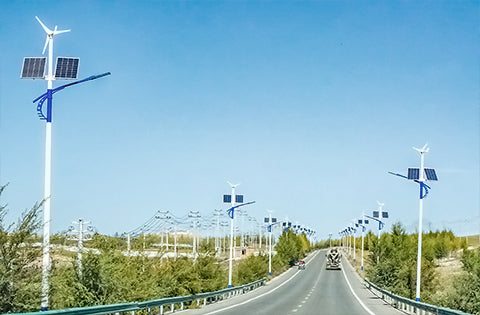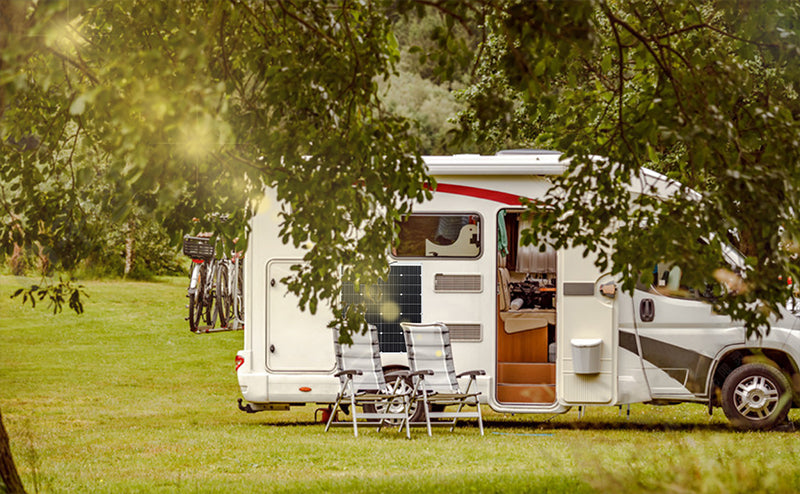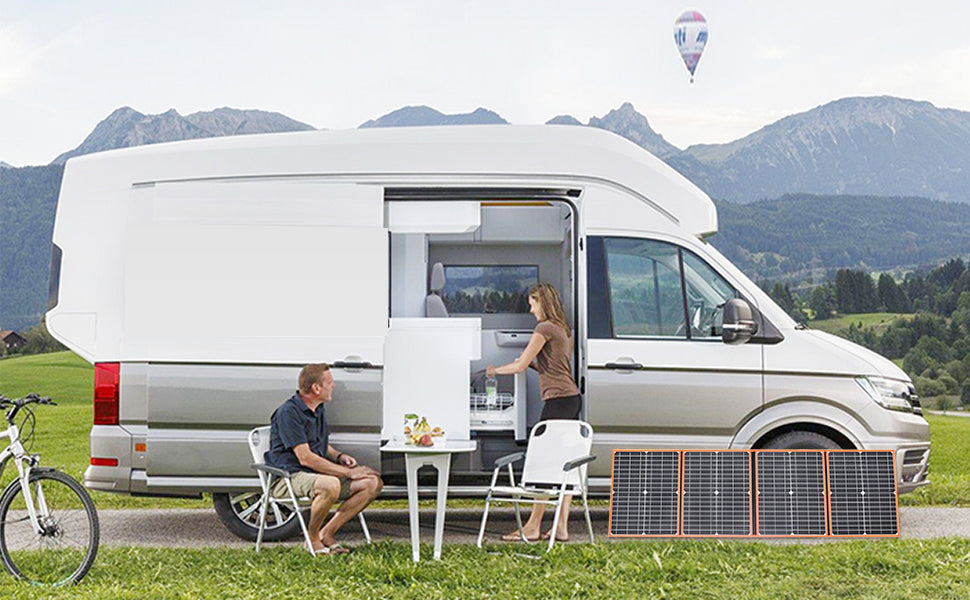What is Solar Street Light?
Solar street lights are raised light sources which are powered by solar panels generally mounted on the lighting structure or integrated into the pole itself. The solar panels charge a rechargeable battery, which powers a fluorescent or LED lamp during the night. The include traditional Solar Street light and all in one solar street light, All-in-one type solar street lights are gaining popularity due to their compact design which incorporates all of the parts necessary in a compact manner including the battery.
The History of Solar Street Lights is a long and winding one. This is a long and interesting history of Solar Street Lights. They were first used in the 1800s, and their design has changed significantly. Modern solar streetlights are much more efficient and reliable than their predecessors.Solar street lights are much more sleek and modern in design and efficiency. They are also much more affordable, which has made them a popular choice for lighting up streets and roads around the world. Solar street lights are a great way to reduce your carbon footprint and save money on your energy bill.
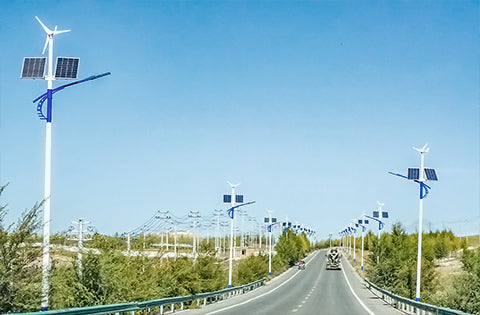
How’s Solar Street Light Works and What are a whole Solar Street Lights Include?
Works: Solar street lights are powered by the sun, which means solar street lighting system uses the photovoltaic technology to convert the sunlight into DC electricity through solar cells. The generated electricity can either be used directly during the day or may be stored in the batteries for use during night hours. The basic operation of the solar street light is that it automatically turns on and off according to the specified parameters set in the controller of the control circuit.
1. Solar Panel: The solar panel is one of the most important parts of a solar street light, as the solar panel can convert solar energy into electricity that the lamps can use. There are two types of solar panels commonly used in solar street lights: monocrystalline and polycrystalline. The conversion rate of mono-crystalline solar panels is much higher than their poly-crystalline counterparts. Solar panels also vary in wattage systems.
2. LED Lamps: LEDs are usually used as the primary lighting source of modern solar street lights, as the LED will provide much higher luminosity with lower energy consumption. The energy consumption of an LED fixture is at least 50% lower than the HPS fixture counterpart which is widely used as the lighting source in traditional street lights. A lack of warm-up time in LEDs also allows for use of motion detectors for additional efficiency gains.
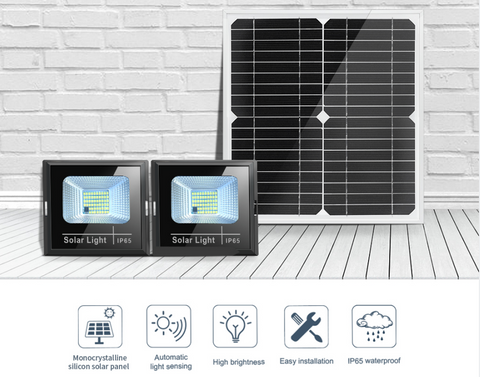
3. Rechargeable Battery(Normally is Gel battery, but All in one solar street light using li-battery): Batteries will store the electricity generated by the solar panel during the day and provide energy to the fixture during the night. The life cycle of the battery is very important to the lifetime of the light and the capacity of the battery will affect the backup days of the lights. There are two types of batteries commonly used in solar-powered street lights- gel cell deep cycle batteries as well as lead acid batteries. Lithium-ion batteries are also popular due to their compact size.
4. Pole (from 3-8 meters): Strong poles are necessary to all street lights, especially to solar street lights as there are often components mounted on the top of the pole: fixtures, panels and sometimes batteries. However, in some newer designs, the PV panels and all electronics are integrated in the pole itself. Wind resistance is also a factor. In addition, accessories do exist for these types of poles, such as a foundation cage and battery box.
What is the advantages of Solar Street Light?
- Solar street lights are independent of the utility grid. Hence, the operation costs are minimized.
- Solar street lights require much less maintenance compared to conventional street lights.
- Since external wires are eliminated, the risk of accidents is minimized. Electricity produced from solar panels is non-pollutive.
- Separate parts of a solar panel system can easily be transported.
- Energy costs can be saved.
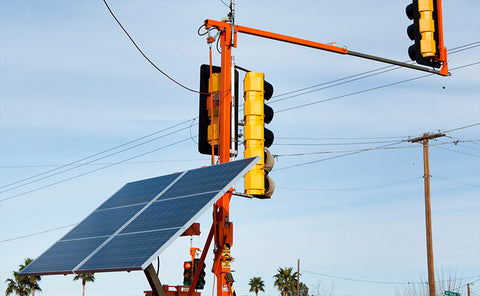
Avoiding Shading when Install Solar Panels
We can’t emphasize enough the importance of installing a solar system correctly. There are several components that make up a solar system, including a solar panel, batteries, a charge controller, and electric components such as a light fixture. All components of the system need to be installed properly for the whole system to work efficiently, and reliably.
The solar panel needs to face due south (for installations in the Northern hemisphere) and be installed at an appropriate angle. The solar panel needs a clear direct view of the sun, and can’t be shaded.
If the solar panel is not installed to the above requirements, it will absorb less energy than expected and will result in inconsistent operation. Most solar systems (including ours) are supplied with additional back-up power to accommodate for several days of unfavorable weather conditions, but they are not designed to consistently function with lower than expected sun-levels due to consistent shading.
How to Design a Right Solar Street Light?
When planning a solar lighting project, we must keep in mind the LED power and illumination time. The two variables equate to the overall power consumption, which is best to be kept as low as possible. From our experience the vast majority of our customers find our lower powered LEDs suitable, but there are some cases where the lights must be as powerful as possible. When high power LEDs are a priority, we may find the illumination time will need to be reduced. So before going into the project you may want to think about the timing requirements. Do the lights need to be illuminated all night? Can a motion sensor be used? Will dimming be suitable? Will split timing be a good option?
And you have to know the quantity, the pole heights, and the LED power.
Keep in mind that lower power consumption keeps equipment sizing and cost lower, and therefore lowers the price of the system.
With the number of systems decided upon, the pole heights and LED power set, we next need to engineer the appropriate size of the solar panel and batteries. This equipment subject to the LED power, the required illumination time, and the winter weather conditions of the install site. The system is designed based on the worst case scenario so you can rest easy knowing your solar street lights should stay on rain or shine.
You have a project in mind? Give us a call. We’ll make it easy for you.
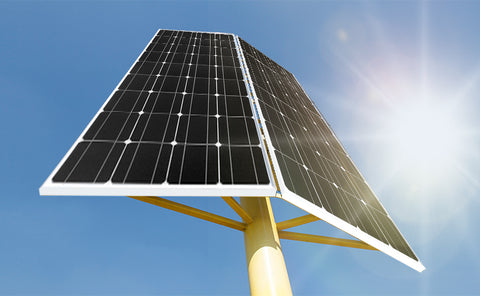
About Isolarparts Solar Street Light Project.
To learn more about photovoltaic power generation, please follow SOLARPARTS official website:
Twitter: Solarparts Instagram: Solarparts
Tumblr: Solarparts Pinterest: Solarparts
Facebook: Shenzhen Solarparts Inc
Email address: Philip@isolarparts.com
Homepage: www.isolarparts.com
